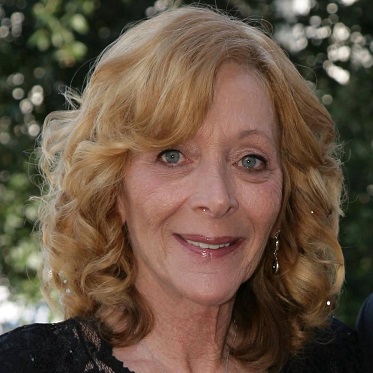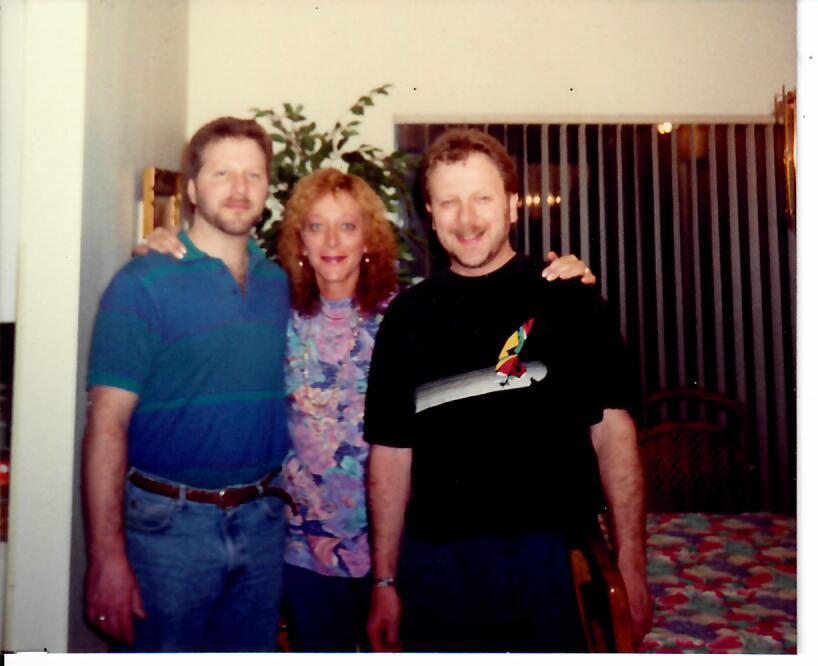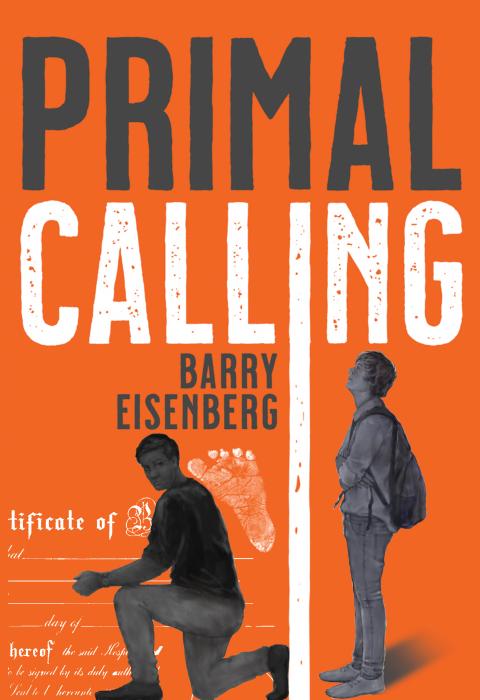Happy Birthday, Roberta
At the time, I thought it was hands-down the most boring thing I ever had to sit through. I was nine, and my sister, Roberta, took me to a Bunraku play, a Japanese stage artform in which dolls act out a dramatic story. We were sitting way in the back of a dark theater on Canal Street in Manhattan, and it was difficult to see the action on the stage. Plus, I couldn’t follow the story. I tried not to fidget since I could tell Roberta was enjoying the play and I didn’t want her to think I didn’t appreciate her taking me. When I was young, Roberta took me to many events. Baseball games were the most fun, the circus a close second. She was nine years older than I, and in her presence, I somehow felt older than I actually was. Looking back, I think it was probably because she didn’t treat me like a child. She respected my opinions and seemed to value everything I had to say. I learned so much from Roberta, possibly more from her than from just about anyone else.
Today, February 22, would have been Roberta’s birthday. She passed away ten years ago, just a few short months after my brother Larry passed away. Both from cancer. Both too soon. My mother, while devastated, pressed on for four more years. She never allowed her grief to consume her or overshadow the joy she experienced loving her great-grand-children who would never know their Grandma Roberta.
I think of Roberta all the time, but most especially on her birthday, and I am so grateful for having had her in my life. To say Roberta was a most wonderful sister is not overstating it. Nor is it an idealization of someone whose passing spurs our memory to elevate their positives and diminish their failings. Roberta could not have been a more caring sibling, and if she had a fault in relation to me it was that she doted too much.
For much of her adult life, Roberta lived with our parents, moving to Florida with them from Queens, N.Y. just at the time she became a single mother. Amy and I had just moved to Philadelphia where I was starting graduate school. We marveled at how patient a parent Roberta was. Everything she did as a mom was filled with care, love, and thoughtfulness. Even when my nephew was an infant, Roberta explained everything to him, from how and why the food she prepared was nutritious to how much fun they would have at the playground the next day to how happy she was just to see his smile. It’s no wonder that my nephew, now a husband and father of three sons, grew into an exceptionally kind person.
Roberta was filled with one part self-doubt, two parts warmth, and all parts selfless. Not to mention very intelligent and curious. But Roberta struggled to realize her potential, often becoming derailed by her vulnerabilities. There is not a day in these past ten years that I don’t wish I had been more sensitive to that side of her. Maybe I could have helped her to see herself as I saw her. Slowly though, over time, she came into her own. It is that culminating life experience that I want to share.
Roberta would be the first to tell you that the jobs she held for much of her life were not very rewarding. But in the last several years, right up until her death, she had a position that was transformative, not just for her but for the hundreds of families she was able to help.
As soon as she finished interviewing for that position, she called us say how excited she was. It was for a receptionist position at a social services organization called Mental Health America (MHA). I couldn’t recall her ever being that enthusiastic about a job. She interviewed with the executive director and came away convinced that this would be more than a job – it was a “meant to be” way for her to help others.
Roberta shared with us that during the interview she candidly explained how her life experience would enable her to relate to the clients confronting behavioral health challenges. She had battled alcohol dependency, she informed the executive director, though by the time of the interview had been sober for over 20 years. She also shared that she had not made the most use of her talents, giving in to insecurities about her self-worth. She had, however, always met her responsibilities in a way that earned the admiration of her employers.
The executive director saw something in Roberta that Roberta was maybe just beginning to see in herself. She hired her on the spot.
Among MHA’s vital social services is a court-mandated parenting skills program for those seeking to regain custody of their children who had been removed from the home and placed in foster care. Initially, Roberta’s role was to answer the parents’ calls, listen to their stories, and based on that information, determine which classes would be appropriate for them.
As the callers’ first contact person at MHA, Roberta found that parents were generally reluctant to open up. It wasn’t unusual for them to be intimidated, confused about the legal requirements for taking classes since much of the correspondence from the court was couched in legal terminology. Also, they could be consumed with the worry that they might not regain custody of their children, nervous about performance anxiety overtaking them in a class setting, and distressed over the possibility of being stigmatized as a bad parent.
The initial contact at MHA could have been someone who unwittingly intensified those apprehensions and even reinforced the parents’ self-perceptions of failing their children. Roberta intuitively understood the challenge faced by someone in her role. She understood it because she had walked in their shoes. Not in terms of parenting – in this regard she was a model – but in knowing that one’s life journey could sometimes be layered with serious bumps that, despite our best intentions, exceed our wherewithal to navigate them successfully.
Roberta’s gift for empathic listening alleviated the parents’ fears, instilling in them hopefulness that the support from MHA would offer a promising fresh start with their children.
Roberta poured her heart and soul into her job. Actually, it was more than a job; for her, it was a calling. She devoted herself to cultivating a welcoming presence to ease fears and anxieties.

She shared some of her clients’ stories with us, ever mindful of not revealing confidential details. She recounted how a young mother with two children, ages three and five, spent days calling the MHA for an intake appointment but kept hanging up just before the call was answered. Finally summoning the courage, her call was answered by Roberta who sensed her trepidation. The woman told Roberta that she was worried she would never see her children again. Roberta assured her that many in her circumstance felt exactly the same way, emphasizing that it was quite natural, even expected, that she’d be apprehensive. The mother thanked Roberta for helping her feel safe and said she now felt encouraged and ready to participate in the class.
Another man confessed his personal torment to Roberta. Believing he had let his eight-year-old son down, he was worried that his son would want nothing to do with him if they were reunited. Roberta did what she did best. She listened. And while she was not a therapist and had to respect boundaries of what could be communicated, she was tremendously calming, helping him to feel comfortable that he was in the right place.
Roberta made a difference. When clients felt discouraged, they often reached out to her to chat, and these small interactions gave them the boost they needed to carry on. It was not uncommon for clients to report to their therapists and teachers that Roberta enabled them to trust the prospect of moving forward with MHA and to believe it could lead to their family becoming whole.
MHA was creating a special room with a two-way mirror, where parents could be unobtrusively observed while visiting with their children during the court-ordered separation. The room was designed to be welcoming for parents and children, filled with toys, games, puzzles, and books. It was going to be brightly painted with comfortable places to sit, either on the soft-matted floor or on cushioned benches along the wall.
Early in MHA’s process of constructing this room, Roberta suddenly succumbed to cancer.
The MHA executive director called Roberta’s son and told him that when it was completed the room would be called “The Roberta Eisenberg Room.” She was certain, she explained, that his mother’s spirit would infuse the room with a welcoming energy conducive to a positive reunion between parents and their children. She invited him and his family to be involved in furnishing the room with special touches they knew Roberta would appreciate. My nephew and his wife dove in, arranging toy drives and donating time, energy, and resources.
MHA organized a ceremony for the opening of this special room. It was attended by all MHA staff, the board of directors, community leaders, our family, and several clients of MHA. The following excerpt from the dedication was written and read by the executive director:
Roberta Eisenberg wanted to make a meaningful contribution to society, and she certainly did! Through her genuine wish to make a positive difference, she transformed a seemingly simple job in the Parenting Department into a lifeline to many. The adversity that Roberta overcame in her own lifetime taught her the value of treating each person she encountered with respect and compassion. The parents who called to set up parenting classes often had fears and trepidations about attending, but Roberta’s special way of listening with her heart eased their concerns. In addition to her empathy with clients, she had an irreproachable work ethic and a great sense of humor. She was a vital part of our MHA family. Roberta’s family knew how much her job at MHA meant to her. For Roberta, it was the opportunity to support and encourage those around her.
As I sat, teary-eyed, listening to the testimonials that followed the dedication, I was suddenly and momentarily that nine-year-old boy sitting and watching Bunraku in a dark theater on Canal Street. This form of Japanese theater tells stories of heroism from times long ago, but they center on human emotions that are timeless and universal. This Bunraku story showed the importance of being there for others. In that instant, I realized why Roberta took me to that play. She wanted me to know that she would always be there for me.
I blinked and was back in the MHA ceremony, having discovered anew all that I understood about Roberta’s giving nature. What had touched everyone in attendance was Roberta’s capacity for extending her heart to someone in need. So, rather than spending more time dispensing advice than listening, she reversed that ratio. I learned from Roberta that what can appear to be the smallest benevolence, listening, is often the greatest gift of all, since in so doing we are honoring that person and dignifying that person’s experience. It goes beyond being heard – it helps us to feel understood.
This is what Roberta did for the clients at MHA, her friends, her family. Just as she had always done for me. At Roberta’s funeral, my children spoke lovingly of how Roberta always took their feelings and thoughts seriously. Their adoration for her is a source of immense joy for me.
I think about that day at MHA often. There were so many parents and children who had gotten the reassurance from Roberta they needed to take that critical first step in rebuilding their lives. Some spoke at the dedication ceremony that day. One woman said that had it not been for Roberta, she may not have had the chance to be a mom to her son. Another cried as she talked about the reassurance Roberta offered when things seemed bleak. I was overcome with pride that day. I was proud because my sister was recognized for a most important if often unheralded contribution. But I was most proud of Roberta for finally finding her way to be proud of herself.
Had Roberta been in attendance on the day she was honored, she would surely have been embarrassed as she was not one for basking in the spotlight. But she would have finally understood that her life did have meaning and that she made a significant and lasting difference in the lives of so many. Roberta had overcome some deep personal challenges. I believe that MHA bestowing that kind of public validation upon her was inspiring to everyone in that room, demonstrating that, we too, can rise and surmount whatever hurdles life throws, blocking our way. In her typically selfless way, Roberta simply wanted everyone to find, as she did, their own paths forward.
Happy birthday, Roberta, my dear, sweet sister.
